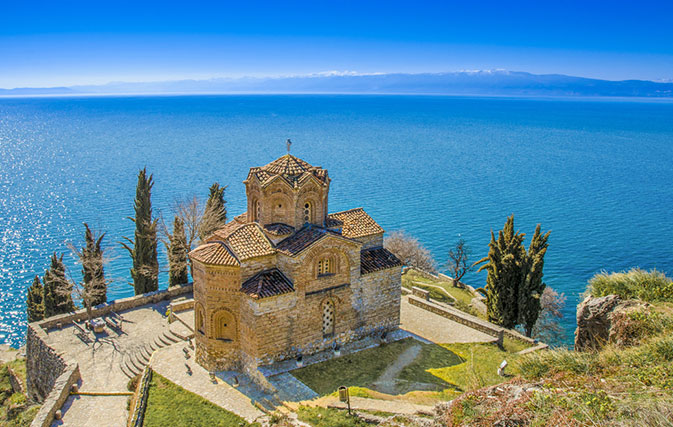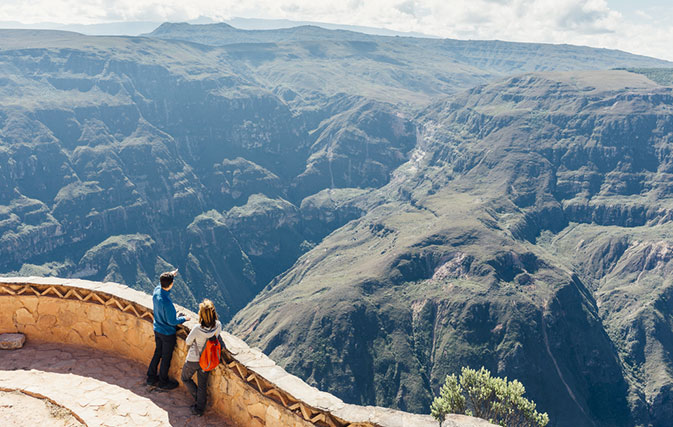This story originally ran in the Oct. 31, 2019 issue of Travelweek magazine. To get Travelweek delivered to your agency for free, subscribe here.
TORONTO — Tapping into the next ‘big’ thing is key for every industry, and travel is certainly no exception.
With fads coming and going at the drop of a hat (believe it or not Extreme Heat Tourism was an actual thing), and others proving to have far more staying power (we don’t see Destination Weddings or River Cruising going anywhere anytime soon), it takes skill, resourcefulness and patience to wade through each year’s slush pile of travel trends in hopes of getting ahead – and booking ahead – of the curve.
Several new niche markets are already gaining traction for 2020 but we’ve honed in on just two that agents should take note of.

THE ‘GRAND’ GETAWAY
According to Booking.com’s 2020 Travel Prediction Trends report, 72% of grandparents agree that spending time with their grandkids keeps them feeling young, while 81% believe that parents need alone time without their children. Pair that with the fact that today’s older generation is healthier and more adventurous and you’ve got a rise in ‘grand’ vacations whereby grandparents are taking their grandkids – without the parents – on holiday.
Tom Armstrong, Corporate Communications Manager at Tauck, confirms that the company is seeing more people booking these kinds of trips, for a few underlying reasons. “First, families are far more geographically dispersed than in the past. Grandparents aren’t seeing their grandchildren nearly as much as they’d like so when they do, they want to take full advantage of those opportunities to create special memories that they’ll cherish afterwards,” he says.
“Secondly, today’s grandparents are generally more active than in the past and they’re physically able to travel with their grandchildren. And finally, there are more vacation options available that make it incredibly easy for grandparents to travel with their grandkids. We’d include our Tauck Bridges family trips in that list.”
For grandparents travelling with kids ages 8-12, Armstrong suggests destinations that focus more on natural wonders and less on history and culture, such as Costa Rica or the Galapagos Islands. Older grandchildren, however, will get more out of trips to culturally-rich places like London, Paris and Rome, while teenagers are better able to tolerate longer flights to places like Africa where they can go on safari.
Christine James, Vice President Canada of TL Network Canada, would agree, adding that these ‘grand’ getaways are a “great revenue opportunity” for travel advisors who want to take advantage of the lucrative group market.
“It boils down to the interests of that particular group of clients,” she says. “That said, I believe that certain ‘modes’ of travel are more accommodating to this multi-generational demographic. For example, cruise lines have been very focused on catering to this group of travellers over the years, offering a variety of activities that appeal to all ages. And for those seeking a more exotic destination, a game safari is a great option as the family will be able to enjoy the unforgettable experience in their own private vehicle.”
And for any grandparent worried about having to entertain their young charges 24/7, Armstrong is quick to remind them that making friends on Tauck Bridges family trips is easy. “There will be plenty of other kids along,” he says. “Children make friends quickly, particularly on vacation, and having both a Tauck director guide and other kids on the trip eases a lot of burden on grandparents to keep their grandchildren engaged and entertained.”
SECOND-CITY TRAVEL
Sustainable tourism has reached a fever pitch, with more and more destinations reaching their breaking point in overtourism and the recent youth-led global climate strikes calling for a greener future. Booking.com reports that over half of Canadian travellers (51%) want to play a part in reducing overtourism, while 45% would swap their original destination for a lesser-known but similar alternative if they knew it would leave less of an environmental impact.
Suggesting alternative locales is par for the course at Goway Travel, says Don Forster, Product Manager for Central & South America and Polar Voyages. “We don’t want to dissuade people from seeing these stunning locations, so instead of simply discouraging tourism we educate people about the effects of travel on the natural world and align ourselves with the work of [local] governments to minimize environmental impact and control tourist intake.”
Goway clients are encouraged to book travel to countries like Bolivia, Colombia and Guyana rather than tried-and-true destinations like Peru and Ecuador. But even in these popular locales, the company makes every effort to highlight lesser-known attractions. For example, in addition to Machu Picchu and the Sacred Valley of the Incas in Peru, clients also visit the archaeological sites of Chachapoyas like Kuélep, and in Chile and Argentina Goway encourages clients to look beyond Patagonia to Chiloé Island or Puerto Madryn.
“Beyond seeing the incredible sights that these places have to offer, travelling to lesser-known cities and regions allows people to have more authentic, less touristy, experiences and to explore surroundings where they can get in touch with local cultures and ways of life,” says Forster. “As well, it’s hard to overemphasize that it’s much cheaper to go to lesser-known spots. Travellers will still get to have unforgettable travel experiences but for a much lower price.”
Jeff Element, President of The Travel Corporation (TTC) Canada, agrees, adding that travelling to more off-the-beaten-path places allows clients to be among the first to see and learn about communities and cultures that aren’t yet widely discovered, while at the same time provide economic empowerment to these up-and-coming communities.
“TTC and our family of brands have taken steps to encourage our guests to explore new, emerging destinations that will benefit greatly from the redistribution of travellers today,” he says. “We also continuously encourage guests to travel in the off- and shoulder-season across Europe, not only for the benefit of the destinations being less busy, but for communities to continue to profit from tourism as well during less busy times of time year.”
With many travellers still flocking to Peru to see the famed Machu Picchu, Contiki, Luxury Gold and Trafalgar are all offering brand new Colombia journeys that offers Teyuna, the Lost City in the mountains of Sierra Nevada de Santa Marta. Plus, as Eastern Europe continues to grow in popularity, TTC is expanding even further east in 2020 with six emerging destinations that include Macedonia, Montenegro and Georgia.
“These up-and-coming destinations still offer the timeless cultures, incredible cuisine and stunning landscapes that draw clients to Europe,” adds Element, “but remain ‘under-tourism’ destinations waiting for guests to discover.”

